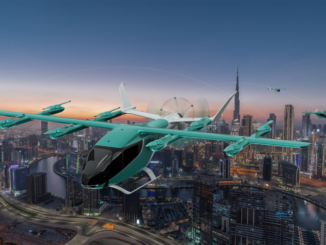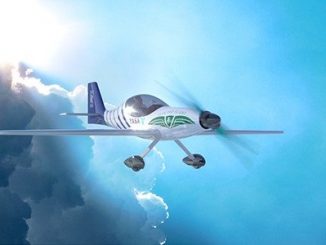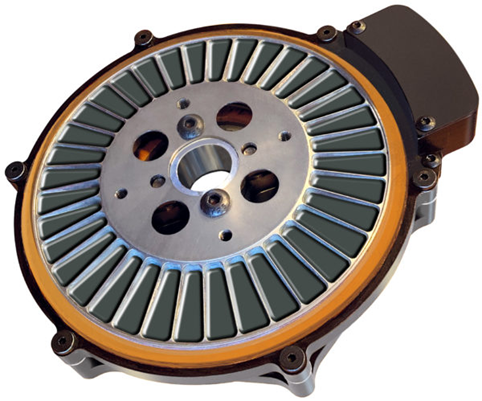
New hybrid-electric generators and power systems from LaunchPoint Electric Propulsion Systems, a startup located in Goleta, California near Santa Barbara, are opening new possibilities in the fast-growing field of electric-powered flight, particularly for drones and electric vertical takeoff and landing aircraft (eVTOL). The new products follow award of development contracts from the U.S. Department of Defense and a round of seed funding that was oversubscribed by investors. Shown above is its DHA050, a 1.5 kW electric motor and controller weighing just 0.45 kg, designed to military specifications.
Since starting as a new business in June 2020, LaunchPoint EPS has entered multiple contracts with commercial aerospace and automotive companies and secured grants from the U.S. Department of Defense to develop hybrid-electric flight technology and flying cars. The company was spun out from design engineering firm LaunchPoint Technologies in Goleta that began 30 years ago as Magnetic Moments, a scientific research and development enterprise.
As reported earlier in Magnetics Magazine, among its innovations has been to develop high specific power, high efficiency electric machines for the demanding, high-reliability applications associated with hybrid electric UAV flight. The machines are an axial flux design based on dual-Halbach array magnet rotors and ironless stators.
Brian Clark, director of engineering and program management, provides this detail about the generator tBrian Clark, director of engineering and program management, provides this detail about the generator technology. “LaunchPoint’s patented electric machine utilizes ironless, axial-flux, dual-Halbach array technology,” says Clark. “The dual Halbach magnet array is composed of precisely manufactured, ultra-high temperature grade, Neodymium-Iron-Boron (NdFeB) permanent magnets.”
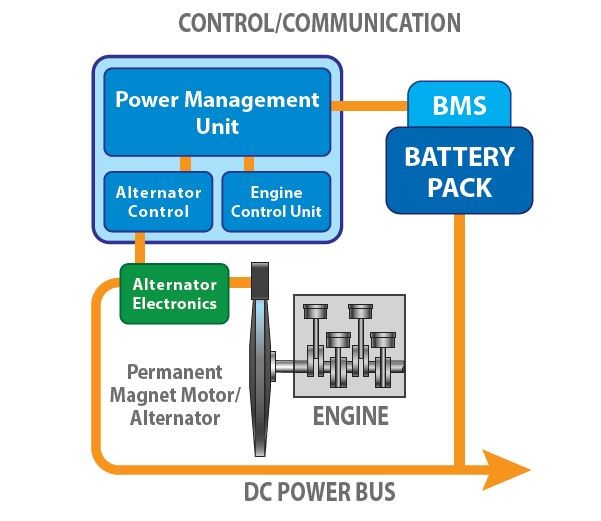
On April 12, the company announced the commercialization of its patent-pending, hybrid electric power system for aircraft, a revolutionary ecosystem of complex motor and controller hardware, plus software for eVTOL aircraft of all types. The system increases flight performance beyond what battery-only or engine-only-powered flight can deliver. It uses a combination of an internal combustion engine and a battery electric distributed drive system for propulsion that increases system-specific power and decreases energy storage mass.
“Simply put, the LaunchPoint HPS is the brawn and brains of a power system of what would be characterized as the equivalent of a ‘flying Prius’ with cruise control – optimized for vehicle range, payload, flight/hover time and battery life,” said Rob Reali, LaunchPoint’s chief executive officer. “Our novel arrangements of component features and innovations meet the needs of the emerging Advanced Air Mobility (AAM) market.”
The HPS product family consists of electric motors, generators, drives, controllers, and hybrid electric power management units designed for power generation and fully electric and hybrid electric propulsion applications. The system is designed to support both parallel and series hybrid operations.
“We’ve evolved the HPS over twelve years to meet the complexities of demanding flight and safety requirements for AAM and unmanned aerial systems (UAS),” said Mike Ricci, chief technology officer. “The integrated electromechanical system utilizes our proprietary SmartPoint control software to coordinate complex, dynamic hardware components, including the engines/prime movers, and intelligently respond to a wide range of system requirements in real time. The system not only solves the problem of regulating variable voltage sources – such as PM generators and fuel cells but it also works together as a microgrid power manager to optimally use energy resources on a vehicle. Power is rerouted to enable reliable, fault-tolerant flight.” The company is also making the individual parts of the system available for licensing and OEM sales.
LaunchPoint HPS products range from 1.5 kW to 40 kW to power UAS. Systems for passenger and large cargo air mobility applications are customized solutions in the 40 kW to 250 kW range, and higher. The systems are designed using its Modeling Advanced Aircraft Propulsion (MAAP) proprietary software suite, which optimizes how a powertrain or electrical power system is architected.
Among its suite of products are two other hybrid-electric propulsion systems, a 6kW hybrid-electric genset for drones and the 40kW genset for larger drone cargo and future air taxis, along with developing new products for the higher-power UAV and AAM markets. Firms in these markets are working to build electric and hybrid-electric cargo delivery as well as passenger-carrying aircraft.
Its HPS400 GenSet is a 40kW generator with the capacity to power large drones and flying vehicle missions that require extended ranges of flight. Until now, the 40kW market has been underserved, says the company. “We’re thrilled to announce the launch of this 40kW hybrid power system,” said Rob Reali, CEO, when it was unveiled. “Given our work the past ten years in the space, we know this is a product that the market wants and needs, and we’re excited to see how quickly the AAM markets continue to adopt our hybrid electric propulsion systems.”
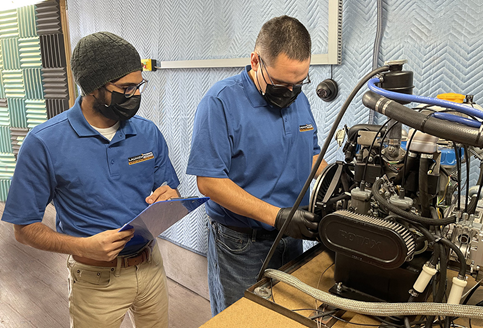
The company recently was awarded an AS9100 certification from the International Aerospace Quality Group and ISO 9001 certification for its manufacturing operations. In other recent developments, it has received a $1 million Small Business Innovation Research grant from the U.S. Army to develop technology for hybrid-electric flight. It is partnering with Georgia Tech on two contracts from the U.S. Department of Defense to help develop flying car technology for the U.S. Air Force’s Agility Prime program.
Additionally, it is collaborating with the U.S. Department of Energy’s National Renewable Energy Laboratory in Colorado under a Cooperative Research and Development Agreement to explore advanced manufacturing techniques for its lightweight aerospace motors. The company also reports that it has secured multiple commercial contracts and orders with aerospace and automotive companies. For more info, see www.launchpointeps.com and www.launchpnt.com.

